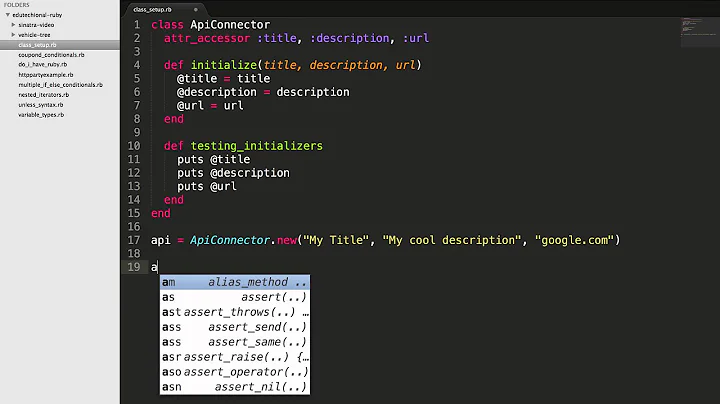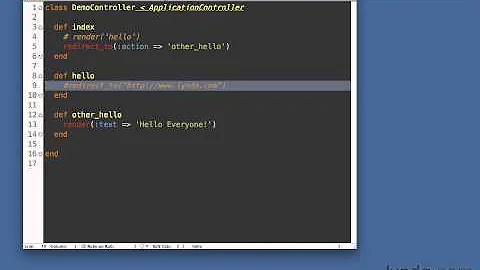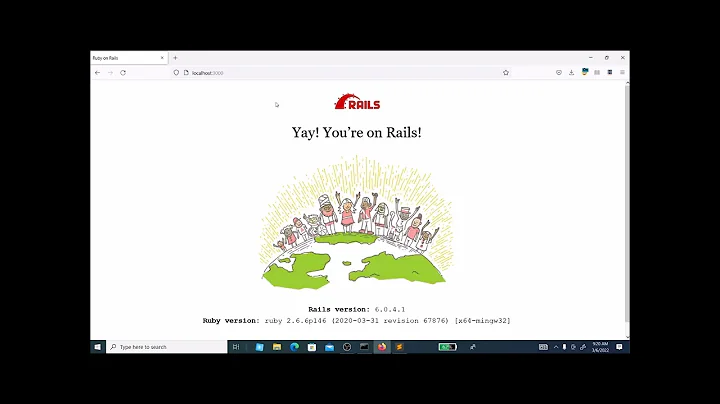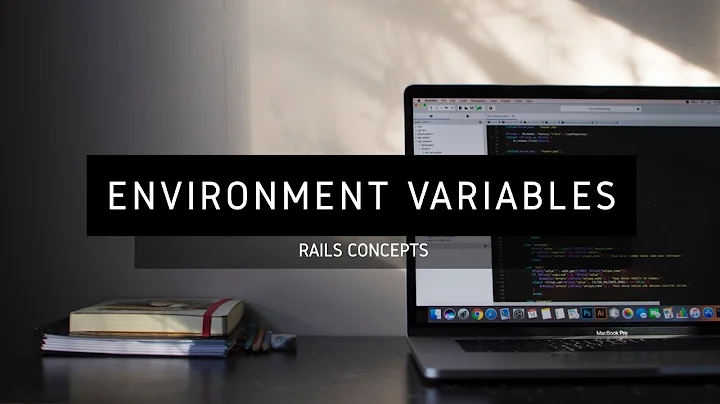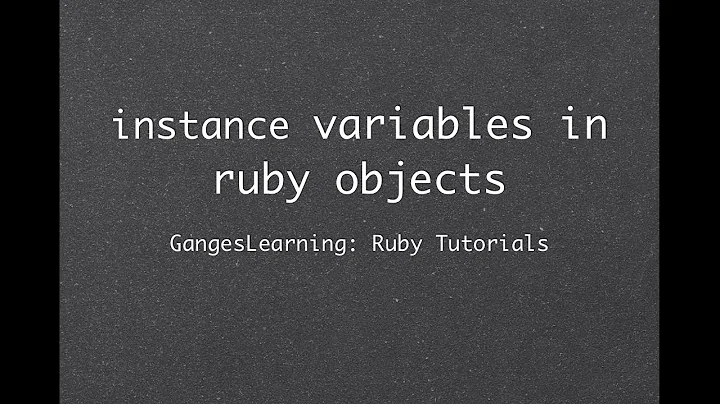Rails - How to set global instance variables in initializers?
Solution 1
In your initilizers/predictor.rb you shall define your recommender not as:
recommender = CourseRecommender.new
but as:
::Recommender = CourseRecommender.new
this way you define a constant throughout the scope of your application, instead of defining a local variable. In your initializer and controller you access it as Recommender.
Solution 2
I solve the problem. But instead of setting a global instance, I use the Singleton pattern.
Here's the code:
# lib/course_recommender.rb
require 'singleton'
class CourseRecommender
include Predictor::Base
include Singleton
# ...
end
# initializers/predictor.rb
@recommender = CourseRecommender.instance
# Add records to the recommender.
@recommender.add_to_matrix!(:topics, "topic-1", "course-1")
@recommender.add_to_matrix!(:topics, "topic-2", "course-1")
@recommender.add_to_matrix!(:topics, "topic-1", "course-2")
# controllers/course_controller.rb
require 'course_recommender'
class CourseController < ApplicationController
def show
similiar_courses = CourseRecommender.instance.similarities_for("course-1")
end
end
Solution 3
I am not familiar with that gem, but it seems like you should have your code in ApplicationController.
in ApplicationController:
@recommender = CourseRecommender.new
# Add records to the recommender.
@recommender.add_to_matrix!(:topics, "topic-1", "course-1")
@recommender.add_to_matrix!(:topics, "topic-2", "course-1")
@recommender.add_to_matrix!(:topics, "topic-1", "course-2")
and then in your controler:
class CourseController < ApplicationController
def show
# I would like to access the recommender here.
similiar_courses = @recommender.similarities_for("course-1")
end
end
Related videos on Youtube
Trantor Liu
I'm the CEO and founder of CakeResume - https://www.cakeresume.com.
Updated on September 14, 2022Comments
-
Trantor Liu over 1 year
I was using the predictor gem. I initialized the recommender in
initializers/predictor.rb:require 'course_recommender' recommender = CourseRecommender.new # Add records to the recommender. recommender.add_to_matrix!(:topics, "topic-1", "course-1") recommender.add_to_matrix!(:topics, "topic-2", "course-1") recommender.add_to_matrix!(:topics, "topic-1", "course-2")And then I wanted to use the recommender in the CourseController like this:
class CourseController < ApplicationController def show # I would like to access the recommender here. similiar_courses = recommender.similarities_for("course-1") end endHow could I set
recommenderas an application controller variable so I could access it in the controllers? -
zetetic almost 10 yearsJust to clarify, the code should go in the controller, and not in the initializer. You might also consider making it a filter if it is only required for certain requests.
-
Trantor Liu almost 10 yearsRight. But I think it makes more sense to put the code in an initializer. Thanks anyway.
-
xiy almost 8 yearsThis is a much cleaner and more maintainable pattern than the accepted answer, especially for testing.
-
iconoclast about 5 yearsI agree with @xiy, but this highlights a problem with Stack Exchange sites. They fail to distinguish between the question and the problem. This answer solves the problem behind the question, but the accepted answer actually answers the question (because the question assumed a particular sort of solution when it was asked). This exposes a simplistic data model used by Stack Exchange sites.
-
Todd almost 4 yearsIs
::needed if we're in an initializer? Would this already be within the global namespace?
